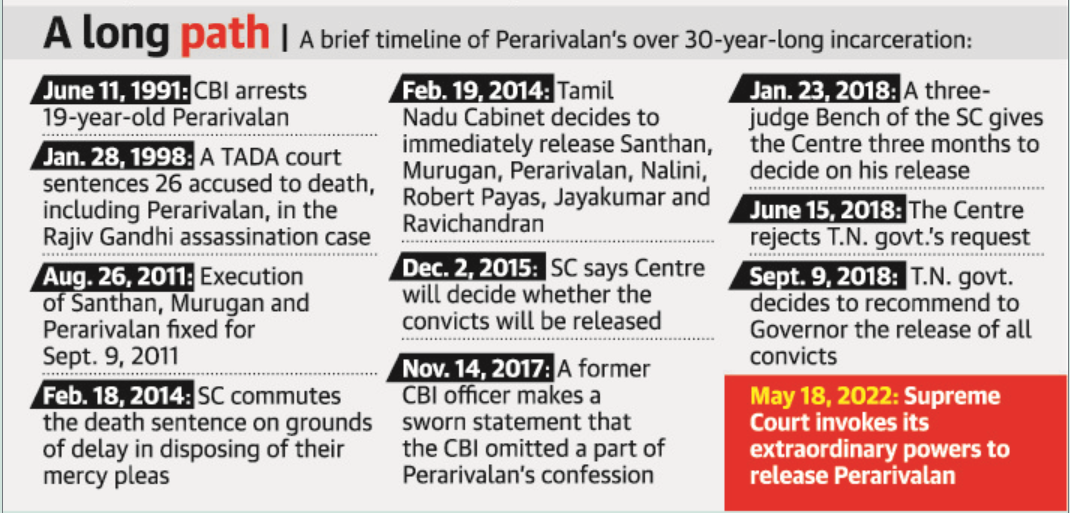ForumIAS announcing GS Foundation Program for UPSC CSE 2025-26 from 19 April. Click Here for more information.
ForumIAS Answer Writing Focus Group (AWFG) for Mains 2024 commencing from 24th June 2024. The Entrance Test for the program will be held on 28th April 2024 at 9 AM. To know more about the program visit: https://forumias.com/blog/awfg2024
Contents
What is the News?
The Supreme Court invoked its extraordinary powers to do complete justice under Article 142 of the Constitution and ordered the release of A.G. Perarivalan in former Prime Minister Rajiv Gandhi assassination case.
What was the issue about?

In 2018, the Tamil Nadu Cabinet had decided to pardon Perarivalan. However, the Governor refused to take a decision on his release and transferred the petition to the President. Against this delay in release, a petition was filed before the Supreme Court.
What did the Supreme Court held?
The court held that the TN Council of Minister’s advice to pardon Perarivalan was binding on the Governor under Article 161 (Governor’s power of clemency) of the Constitution.
This means that the Governor prima facie had no authority to transfer the mercy plea to the President.
Why was this a case for the Governor and not the President?
Perarivalan was not a death-sentenced convict (Earlier, the apex court had commuted his death penalty to a life sentence for murder in 2014). Hence, the Governor had no business forwarding the pardon plea to the President after sitting on it for years together.
Had this been a death penalty, the case would have been different. Hence, by invoking Article 142, the court ordered the release of A.G. Perarivalan.
Why did the Supreme Court invoke Article 142?
Governor’s delay to decide Perarivalan’s pardon for more than two years has compelled the apex court to employ its constitutional powers under Article 142 to do justice to Perarivalan.
After all, the court said, a Governor’s non-exercise of power under Article 161 of the Constitution was not immune from judicial review.
What was the Centre’s argument on this issue?
Centre’s argument was that the President exclusively and not the Governor had the power to grant pardon in a case under Section 302 (murder) of the Indian Penal Code.
But the court said that such a contention would render Article 161 a “dead-letter”.
This would rather create an extraordinary situation whereby pardons granted by Governors in murder cases for the past 70 years would be rendered invalid.
Source: The post is based on the article “Perarivalan, Rajiv Gandhi case convict, released by Supreme Court citing extraordinary powers” published in The Hindu on 19th May 2022.




